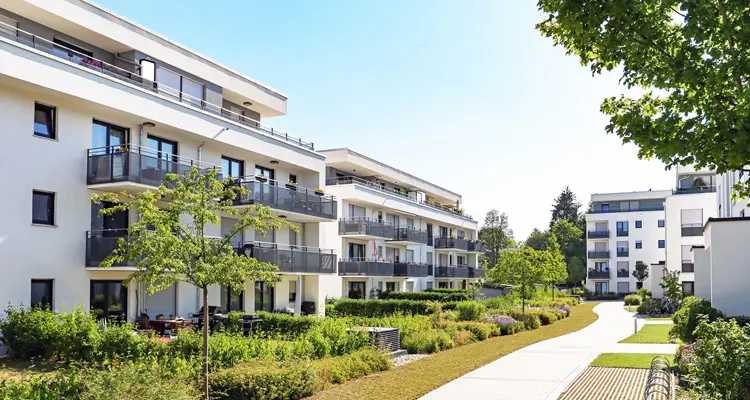In recent years, South Africa has faced a challenging economic landscape, with inflation and slow economic growth being key concerns.
The South African Reserve Bank (SARB) has adjusted interest rates as a measure to control inflation and stimulate the economy.
These changes in interest rates are often used as a tool to influence the cost of borrowing and, consequently, the real estate market.
Effect of High Interest Rates
When interest rates are high, the cost of mortgage loans increases.
This can lead to a reduction in the demand for properties, as fewer people can afford the high financing costs. The following impacts are observed:
- Decrease in Property Demand: With more expensive loans, many potential buyers decide to postpone purchasing properties, resulting in a drop in demand. This decreased demand can have a ripple effect on the broader economy, as the real estate sector is closely linked to various industries, including construction, home goods, and financial services.
- Reduction in Property Prices: With fewer buyers in the market, sellers may be forced to lower prices to attract buyers. This price reduction can be particularly pronounced in markets that were previously experiencing high growth, as the sudden drop in demand creates a surplus of available properties.
- Impact on Investors: Real estate investors may find it difficult to finance new projects, leading to a slowdown in real estate development. High-interest rates can increase the cost of capital, making it less attractive for investors to pursue new developments or renovations.
Effect of Low Interest Rates
Conversely, when interest rates are low, the real estate market tends to thrive due to the lower cost of borrowing. This results in several benefits:
- Increased Affordability: Cheaper loans make property purchases more accessible to a larger portion of the population. This increased affordability can lead to higher homeownership rates, which can have positive social and economic benefits.
- Property Appreciation: With more buyers in the market, property prices can rise due to higher demand. This appreciation can create wealth for existing homeowners, who may see significant increases in the value of their properties.
- Stimulus to the Construction Sector: With higher demand for properties, there is an increase in construction activity and the development of new real estate projects. This construction boom can create jobs and stimulate economic growth, as new developments require a wide range of materials and services.
Behavior of Buyers and Sellers
Fluctuations in interest rates directly affect the behavior of buyers and sellers in the real estate market.
During periods of high interest rates, buyers tend to be more cautious, prioritizing more affordable properties or delaying purchases.
This cautious behavior can extend to other financial decisions, as higher interest rates can increase the cost of credit and reduce disposable income.
Sellers, in turn, may need to adjust their price expectations and be more flexible in negotiations.
Properties may stay on the market longer, and sellers may need to offer incentives, such as covering closing costs or providing home warranties, to attract buyers.
When interest rates are low, buyers are more active in the market, taking advantage of favorable conditions to secure better deals.
This increased activity can create competitive market conditions, where buyers may need to act quickly and make strong offers to secure their desired properties.
Sellers, aware of the increased demand, may be less inclined to negotiate prices, knowing there is a higher likelihood of selling their properties at higher prices.
In such markets, sellers may receive multiple offers and can choose the most favorable terms, such as cash offers or quick closings.
Different Segments of the Market
The impact of interest rate changes can vary across different segments of the real estate market.
For instance, luxury properties may be less sensitive to interest rate changes, as buyers in this segment often have more financial flexibility and may not rely as heavily on mortgage financing.
First-time homebuyers, on the other hand, can be significantly affected by interest rate changes.
Higher rates can increase the cost of entry into the market, making it more difficult for these buyers to afford a home.
Conversely, lower rates can open up opportunities for first-time buyers to enter the market and start building equity.
Future Prospects
The future of the South African real estate market is closely tied to SARB’s monetary policies and the country’s overall economic conditions.
Stability or reductions in interest rates can continue to stimulate the real estate market, making it more accessible and attractive to buyers and investors.
However, any abrupt increase in interest rates could present significant challenges, slowing down the market and negatively impacting property prices.
Understanding the influence of interest rates on the real estate market is crucial for anyone involved in buying, selling, or investing in properties.
By staying informed about SARB’s policies and broader economic trends, stakeholders can make more informed decisions and better navigate the complexities of the market.




